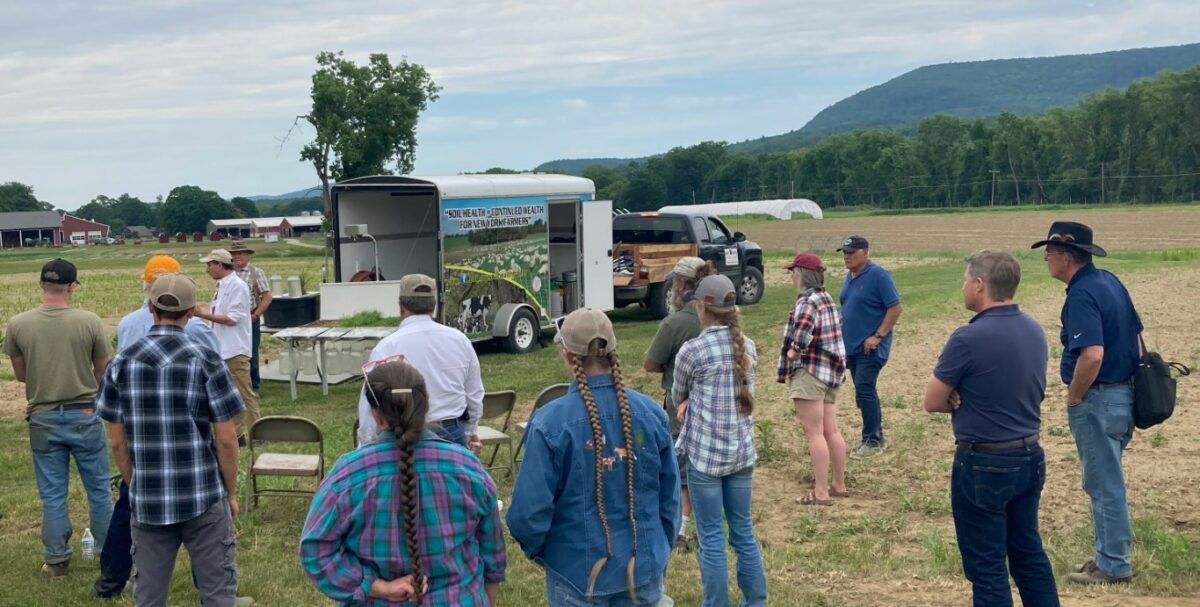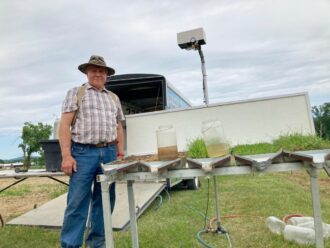Soil Health Field Day Features Practical Demonstrations and Hands-on Learning
On June 21st, 2022, a field day took place at the University of Massachusetts Crop and Animal Research Education Farm. Professional Development Grant Program Coordinator Katie Campbell-Nelson was glad to be among the attendees after a long break in such in-person events.

The field day was full of presenters who knew how to center farmers in their work – including several former Northeast SARE grantees. One of the driving themes Campbell-Nelson noticed in the presentations was a strong emphasis on the specific applications of farmers in their work.
“It wasn’t academic or detached,” she said. “It was very farmer-focused and farmer-driven."
That farmer-focused thinking led to countless conversations between farmers and researchers, who built a dialogue around practical problem solving. Farmers are the primary audience for all Northeast SARE’s grant programs, and previous grantee’s carry that thinking forward, even after their final project report.
Campbell-Nelson says one of the most striking presentations of the day was made by Fay Benson, a former SARE grantee from Cornell Cooperative Extension who travels the region with a trailer full of soil health demonstrations.
One question from Benson's presentation made an impact on Campbell-Nelson.
“He was talking about rainfall on soil and how tilled soils are more susceptible to runoff and erosion, and he asked if anyone knew ‘how many horsepower is exerted by a raindrop?’ and then he showed the splatter pattern of how much soil is lost by an individual raindrop,” she said. “It was a pretty effective way of describing it.”
Another highlight of the field day was an equipment demonstration that did not go as expected. Some initial difficulties with a no-till transplanter provided an opportunity for all of the participants to troubleshoot together. Because no two fields or farmers are the same, the experience was a hands-on opportunity to practice the skills farmers would need to adapt and adopt a new sustainable practice.
“This is a valuable climate adaptation strategy and method for reducing erosion and protecting soil health,” Campbell-Nelson said. “But if we don’t know how to use it, we’re not going to pick it up.”
Farmers are many things, including inventors.
“Farmers invent things as they go along, essentially because of necessity,” Campbell-Nelson said. “Even the most basic piece of equipment like a roller, you need to figure it out for your farm.”
Learning together in person helps create a stronger community understanding of a practice or a piece of equipment.
“We all have our individual needs for education,” Campbell-Nelson said. "But when we get together and we really think about the community of agriculture we're in, we all learn."
